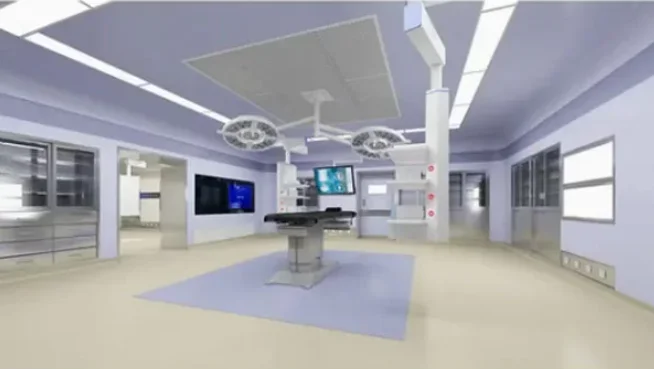Purification engineering is a vital discipline within chemical, environmental, and biomedical engineering, focusing on the design, development, and optimization of processes that remove impurities from substances. Whether it involves water, air, pharmaceuticals, or industrial chemicals, purification engineering ensures that products meet stringent quality and safety standards. In an era where sustainability, health, and safety are paramount, understanding the principles and applications of purification engineering has become essential for industries and researchers alike.
Principles and Techniques in Purification Engineering
The foundation of purification engineering lies in understanding the physical, chemical, and biological properties of the substances being purified. Engineers analyze how contaminants interact with the medium and design systems that selectively remove unwanted elements while preserving the desired product.

Several techniques are commonly used in purification engineering:
Filtration: Mechanical separation of solid particles from liquids or gases using membranes or filters.
Distillation: Separation of components based on differences in boiling points, widely used in chemical and pharmaceutical industries.
Chromatography: A sophisticated technique that separates components based on chemical properties and affinities to stationary and mobile phases.
Adsorption: Utilizing materials like activated carbon or zeolites to bind and remove specific contaminants from liquids or gases.
Membrane Technologies: Including reverse osmosis and ultrafiltration, crucial for water purification and biopharmaceutical applications.
Effective purification engineering also incorporates process design, simulation, and monitoring to optimize efficiency, reduce waste, and ensure compliance with regulatory standards. Engineers often use computational tools to model purification processes, predict outcomes, and scale up laboratory processes to industrial applications.
Applications of Purification Engineering Across Industries
Purification engineering has broad applications across multiple sectors. In the pharmaceutical industry, purification processes are critical for producing high-purity drugs and biologics. Contaminants in medications can pose serious health risks, making purification engineering an indispensable component of drug manufacturing.
In the environmental sector, purification engineering is employed to treat water and air. Water treatment plants rely on advanced filtration, membrane separation, and chemical treatment to provide safe drinking water. Air purification systems, often using adsorption or electrostatic methods, remove harmful pollutants and improve indoor and outdoor air quality.
The food and beverage industry also benefits from purification engineering. Processes like pasteurization, filtration, and deionization ensure that products meet safety and taste standards. For example, the production of high-purity sugars, dairy products, and beverages requires precise purification steps to maintain quality and comply with regulatory requirements.
In industrial chemical processes, purification engineering ensures that raw materials and finished products meet quality specifications. This includes the removal of trace metals, organic contaminants, or particulate matter. High-purity chemicals are essential for semiconductor manufacturing, laboratory reagents, and specialty chemicals.
Sustainable practices are increasingly integrated into purification engineering. Engineers are developing energy-efficient processes, recycling solvents, and using green materials to minimize environmental impact. By combining innovative technologies with traditional purification techniques, the field continues to evolve to meet the demands of modern industries.
Conclusion
Purification engineering is a multidisciplinary field that underpins the production of safe, high-quality, and reliable products across a range of industries. From pharmaceuticals to water treatment, air purification to food and beverage production, the principles and techniques of purification engineering ensure that contaminants are effectively removed while preserving the integrity of the desired substances.
The future of purification engineering lies in innovation and sustainability. By integrating advanced materials, computational modeling, and environmentally friendly processes, engineers can design systems that are more efficient, cost-effective, and sustainable. Understanding and investing in purification engineering is essential for industries seeking to improve product quality, comply with regulations, and protect human health and the environment.
FAQs About Purification Engineering
FAQ 1: What is purification engineering?
Purification engineering is the branch of engineering that focuses on designing and implementing processes to remove impurities from liquids, gases, or solids to achieve desired purity levels.
FAQ 2: What are the main techniques used in purification engineering?
Common techniques in purification engineering include filtration, distillation, chromatography, adsorption, and membrane technologies like reverse osmosis.
FAQ 3: Which industries use purification engineering?
Purification engineering is applied in pharmaceuticals, water and air treatment, food and beverage production, chemical manufacturing, and semiconductor industries.
FAQ 4: Why is purification engineering important?
Purification engineering ensures products are safe, high-quality, and compliant with regulations. It also minimizes environmental impact and improves efficiency in industrial processes.
FAQ 5: What are the future trends in purification engineering?
Future trends in purification engineering include sustainable and energy-efficient processes, the use of advanced materials, computational modeling, and environmentally friendly purification techniques.
Hebei Lixin Medical Engineering Co., Ltd. was established in 2011. medical oxygen generator manufacturers The company specializes in the production and sales of medical central gas supply systems,medical oxygen generator manufacturers medical molecular sieve oxygen generation equipment, medical oxygen generator factory low-pressure oxygen chambers, medical air purification equipment, and undertakes projects such as hospital operating room and laboratory purification, cleanroom construction, radiation protection engineering, and medical wastewater treatment engineering.medical oxygen plant manufacturer